Water and the Rising Feminine
Opening Prayer
Pat | I reach out to the holy water of Life, the life blood, the milk of our mother, the one that sustains all life, that makes it possible for us to receive this holy gift of Life. Reaching out to you as woman.
Water, you come to me as I grow the next generation of our kind, the five-fingered ones in those birth waters. Reaching out to you today and asking you to bless our conversation here, I invite you into this conversation deeply as the elder of elders here amongst us and to inform this conversation, as we have this opportunity to speak with you, as you, for you, and on behalf of Life.
We don’t know where you, Water, will travel through this conversation—through the hearts, minds, bodies, spirits of these women who are gathered. But I ask that you be the principal informant of what is given from this small circle of women to the rest of this life, this larger community of the flying ones, swimming ones, creepy crawling ones, four-legged ones, and also the spiritual community.
We just give thanks, give thanks, give thanks, give thanks, and open the waters of our heart to that wellspring that is so deep, and maybe has never seen the sunlight of consciousness until now, until this very conversation.
Judy | I never really understood how important water is to our lives until my time at Standing Rock. The thousand-year-old Lakota prophecy of the Black Snake foretold of a black snake rising up out of the earth and traveling across the land causing great suffering and destruction. The Lakota saw that black snake as the fossil fuel industry and the pipeline that was coming toward them.
We were instructed by the Native Leaders that when we got home, we should look to see how we could protect Mother Earth and our water supply in the places we come from. When I got home to Pennsylvania, I found it in the fracking and the pipelines for the fracked gas going through our communities and under our streams. It got me to focus on the threat to our water in Pennsylvania. Mni Wiconi, water is life!
Li An | I wanted to connect with our watersheds, so it started with canoeing the whole river in northern Québec in Canada on the Rupert River, which was planned to be dammed and diverted for hydro energy. During that journey, I was able to directly drink that river water. I could never imagine doing that with my river in the Netherlands. Three years later, I returned to that river and the water was not drinkable anymore.
I thought, If we have drinkable rivers again, that would mean that an entire watershed is healthy, and all the relationships must be healthy. I wanted to meet the families of my own watershed. I started walking the river Meuse at the source to the North Sea for over 1000km. There were only two days of rain during the two months I was walking. It was a very prolonged dry period in areas where we usually see a lot of rain. In the past 11 years, walking has been my dominant mode. I’ve walked about 15,000 kilometers across five continents, putting water and my water walks at the center of it. Much more water awareness has grown since then.
Eve | I’m a mother of two children, three and eight years old. I became really invested in this work around the Marine East II pipeline and stopping pipelines because of my concern for their immediate safety, but also their long-term future, health, and well-being. Where we live, outside Philadelphia, the air quality is extremely poor. Both of my children struggle with asthma. I have one child who’s been hospitalized on numerous occasions with respiratory distress.
There have been numerous issues with water contamination across the state. Over a dozen families have lost access to water, which was otherwise pristine and drinkable. There have been over 200 instances of drilling mud into waterways of the Commonwealth, including wetlands and aquifers, and contamination of these resources. I remember being at a public meeting where a pregnant woman stood up. She was eight or nine months pregnant, and she had been drinking that contaminated water for two weeks. From the perspective of mothers and parents, the right to clean water and clean air is something that we fight for every day here.
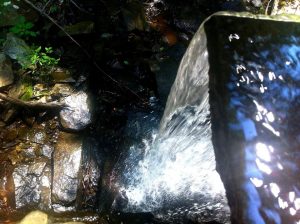
How is water speaking to you as a woman and an activist? How has it been a metaphor for you?
Pat | A group of women came to New Mexico to stay with me for the last four days. We spent a great deal of our time in water. It was so beautiful; it also instructed me to watch how transformative waters truly are. I feel that we are suffering from low self-esteem as a species right now, with shame and fear and guilt. Fear of ourselves. And when we encounter other human beings in that state, it’s not ideal for co-creation. It’s not an ideal state for taking bold action.
I really think a lot about upholding the honor of being a human being, to be given a place among all the other life forms on this sacred hoop of life. I noticed how water here in my home restored me and the people who were with me back to the truth of that honor. It restores me to right mind, right heart, right body, right action. I really turn to the water to have that restoration.
Here, in my own community, a negotiation was made with all the different factions who use the water that comes down off the mountain for agriculture. In that agreement, because one party was given a huge amount of water rights, they said, “We’ll make up for the deficit by drilling deep, deep, deep and bringing up that water to make up for it.” I’m really concerned about that, and I know that’s not just going to happen in my community. To access the very heart of life that’s at the very heart of Mother Earth, that’s a deep concern. The entire possibility for life on the planet is jeopardized if we go down that deep.
As women, I see us as the relational glue, the relational builders, so I need to get it really straight in my own mind and heart from what ethic will I address these pressures and potential conflicts around water.
Li An | How is water speaking to me as a woman, and what does water teach me? When I took that first sip directly from the river, it moved me. I instantly cried. That is how water and emotion are deeply connected. It was very powerful. It was such a deep, beautiful experience that it redefined beauty for me—that beauty as a quality can actually emerge from our healthy relationships with nature.
While walking the entire Meuse River and experiencing this watershed, I stayed with more than 50 families. I felt this deep teaching from the watershed system that we are the family where water is the bloodline of humans and, of course, a family including the other-than-humans. Trees, fish and people, we all share the same water. I’ve been spending so much time outside, sleeping outside and writing, being with the river. When daily researching water quality with local people while walking the river Meuse, the first thing we did was thank the water before using it. I’ve been sharing that with people. The power of that gratitude is what water teaches us as well.
Judy | I think of water as the blood of Mother Earth, the way we’re all connected. It is circulating through all of us. The water we drink today was also consumed by the dinosaurs and all the people in history. It’s the connector that really ties us together. Yet, I’m troubled by the lack of concern that people have for water.
I was just watching in the news the other day about the shortage of water in Arizona and how they bring water hundreds of miles—they channel it hundreds of miles from the Colorado River—to feed the towns and cities in Arizona. I think, Well what’s happening in Mexico where the Colorado River flows to? Is the water getting to those people now, if it’s going to communities in Arizona, including to green the golf courses and fill the swimming pools and so on? There is a lack of a sense of reciprocity, of giving back for what we get, of replenishment and restoration.
I do agree that this is connected to our economic system and how we place our value on money and on material possession. That’s how capitalism measures success—how many material things do we have? Really, true wealth is having clean water to drink, clean air to breathe, rich soil to plant our food in. This is what our wealth is, really. Our wealth is community also, our relationships with each other.
We need a revolution of values, like Martin Luther King used to say, to change how we measure success and the way we do business, to align our economic system with the natural system. Our economic system should mirror our spiritual interconnectedness and our environmental interconnectedness.
I find oftentimes that even environmentalists don’t think about their economic transactions. We need more awakening around our economy and to realize that every economic decision we make leads to a better or a worse world. It leads either to peace and harmony, or it leads to devastation and war. Every single person who spends a dollar has power in the way they spend that money. It’s not about the highest price or the lowest price. It’s about the impact that decision will have on the living world that we all depend on.
Eve | In our dominant culture in this country, we have the tendency to view water as limitless. We are able to access water just by turning on a faucet. We’ll turn it on, and it will be there, and it’s limitless. It’s a real metaphor for our limited understanding of the limited resources that we have in general.
Clean water is not a limitless resource. We’re seeing that manifest right in suburban Philadelphia. People are realizing that when millions of gallons are extracted from the Delaware River for electrostatic testing of fracking byproducts, or when water is used in the fracking process and contaminated and injected into wells back into the earth, we are taking a resource that perhaps could have been limitless, clean drinking water, and making it very limited through that contamination process.
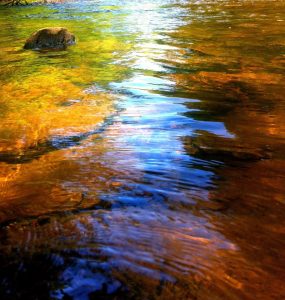
What is consuming you at this time?
Eve | The same corporation, Energy Transfer Partners, that’s responsible for Standing Rock has forcefully taken land of residents and homeowners across Pennsylvania, by force, by eminent domain. It has been constructing a very dangerous, highly volatile, liquids pipeline. Natural gas liquids ethane, propane, and butane will run within feet of people’s homes and schools. The blast zone on this pipeline can be up to half a mile, and we have about 3,000 people per square mile in this densely-populated area.
We have had a number of actions over the past couple of weeks with a group called the Mama Bear Brigade. A group of women—mothers, and grandmothers in our community—who have come together to participate in direct action against the pipeline. They’ve been doing what we do in our communities: having picnics, having bake sales, and they’ve been doing it on the drill sites with the intention of proclaiming, “This is our space. You came in here and invaded us. We’re not trespassing on you, you’re making a trespass upon us by taking our land, and contaminating our water.”
Li An | What are my gifts and talents? What meaning do I want to be in the world? Almost every season, I revisit these questions to sharpen them and to awaken them. They’ve become like a bow and arrow now; once they are really aligned, the answers move ahead of me.
I’m proposing Drinkable Rivers as another compass than economic growth. It could be an alternative indicator for the finance world. I have organized walks, for instance, with risk managers of banks. I’m thinking about walking next in my fatherland, China. If you have any connections in China with women in water or River Chiefs, let me know. I think maybe my life will meander that way.
Judy | My consuming passion right now is a campaign I started a few months ago called Proud Pennsylvania. It’s a citizens grassroots campaign to project a positive vision for our state: that it be run on 100% renewable energy; that we have sustainable local economies that produce our food, fuel, and fiber locally; and that we support political leadership that will protect our environment and really defend our communities from corporate rule.
Proud Pennsylvania is working with state legislators who will ban fracking and then pipelines. Of the 14 candidates that we’re endorsing and for whom we’re raising money, 12 are women.
Pat | My daughter, Lyla June Johnston, called me up the other day and she says, “I’ve got a question for you.” I could tell by the way she said it, I was like, “Whoa, here we go.” She said, “Do you want to save the world?” I had to think for a minute. We know each other pretty well, so I could kind of feel where she was coming from. I said, “Yeah, I do, but I also get really overwhelmed when I think about it that way.” What I try to focus on instead is, through my spiritual practice, to try to hear what Spirit is asking of me personally. When I keep it to that, then I feel productive in the face of the ten million tasks that it seems like it’s going to take to turn everything around. I say, “If I can just stay with that, then I feel clear and I feel empowered, and I can move forward a little easier than just thinking about saving the world.”
Spirit is pointing out to me different points in human history in which we have taken a fork in the road that has led us to this precipice. I am convening four different dialogues in four different places on the earth. In England, in India, here in the United States, and also in China.
Really, that study is also looking at the concept of how much humanity really desires to participate in cause and effect. What’s being linked together in that vein is science, medicine in the sense of what we call shamanism, and magic. Spiritually, at the root of our dilemma is that we don’t honor the law that says we have to respect the sovereignty of all living beings. Until we really commit to that law of free will and sovereignty, we’re going to keep ending up back here.
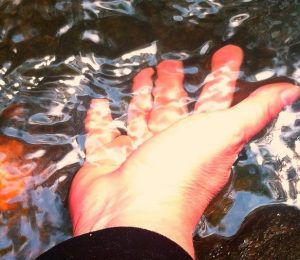
What kind of guidance are you receiving and would you like to receive from the elder women in your life?
Li An | I think especially song and story. I’d like to hear them, and see them, and touch them, and feel their presence, whether they are in physical proximity or whether they’re there in spirit. For many generations, I think we’ve had a habit—maybe it was a mixture of modesty and being in service—of elder women being suppressed or not being heard. I’d love to invite them to sing their hearts and to share their stories with us. That modesty can turn to the boldness like Pat was mentioning.
I just traveled to Mozambique with a woman in her 70s, and we were offering gratitude rituals every full moon in favor of climate stability. Traveling in sisterhood is very nurturing. And also showing and sharing ourselves, being reminded of our value or worthiness, revaluing and constantly awakening as a new generation. We have that choice to shine and to show up in a very embodied way.
Eve | I find this to be a very challenging and relentless task. My children will say things to me like, “We can’t wait until they shut that pipeline down so you can spend more time with us.” Then I have to explain to them about climate change and the fact that even if and when we win this battle, there is no rest. I guess what I would ask for from elder women is guidance on how to be present in this life while walking this very challenging path of resisting the structures that are causing destruction to our planet and our children’s future. How can I be present in a way that allows my life to be full and not depleted through the energy of always, always fighting?
What messages or words would you share with the younger generations of activists that are coming in?
Judy | I do believe that intergenerational work is necessary in order to bring transitional change. When I was growing up, we were at odds with our parents in the 60s because of the Vietnam War. I didn’t feel any type of a connection with the generation older than me about the things that I cared most about—civil rights, peace, and so on. Not that I was at odds with my parents, but with society in general. There was a gap between our generations. I don’t feel that way now. I feel a real alliance with younger people in their 30s and 40s, and so on. I’m 71.
It’s so important that we find ways to work together. I can relate to Eve about her concern with life/work balance because I was not a model of that at all. In fact, my biggest regret in my life was not spending enough time with my children. I was an activist entrepreneur, so I always had that question also. How much time should there be for family versus the crisis that we’re in now?
It’s tough, and one of the things I did, I started taking my kids with me to get them involved. I remember taking my daughter to her first protest when she was about five years old. My daughter, who’s now 38, went with me to visit Lancaster Against the Pipelines, and that’s where I put my stake in the ground and joined their effort and ended up getting arrested. That action was intergenerational. The more we can work in an intergenerational way, the better for sure.
Pat | I remember I was at this dialogue between quantum physicists, linguists, scientists and indigenous people. We used to do these talking circles. We had young people present and I remember the conversation just getting so heavy, super heavy and this elder woman stood up and said, “Hey everybody listen here. Our young people have the right to have hope. That is their birthright.” She was cautioning us about being mindful of them in their life and where they are. Those things really stick with me.
When I’m talking to high school students, I say to them, “You know, I want to say something to you and it’s going to sound radical, but no one ever said it to me and I wish they had, because it would have made a difference. That is, I want to tell you that your joy matters. Your joy is your hard drive and, in fact, I believe that you came here for that purpose, and what I know from my own life is that there is no greater joy than living your purpose. In that sense, I’m going to say your joy is your compass. If you’re starting to head towards joy, that means you’re heading towards your purpose, so follow that trail.”
I met with indigenous elder women from the Sierra Nevada in Colombia. After meeting for five days, they looked at us and they said, “To the women we say, you must move and speak and act with the authority of the mother.” Those words rang through my bones, my soul, my heart. I had to think about it. The authority of what mother? The authority of the Mother Earth. They’re saying to us that you stand with the authority of Mother Earth. I call myself Holy Earth Surface Walker, Life Bringer, Life Bearer, who carries the authority to speak on behalf of life in every situation. It is my duty and my authority to ask in every circumstance in my community as we propose something, “Are we putting life at the center?” That’s my authority.
I have to learn how to reclaim that authority, which is different than being an enraged woman. It can be that, but that doesn’t make it. There is actually a calmness when we fully claim that authority and it is heard and recognized. When I was an angry woman, a lot of the powers that be—the men—backed away. When I speak as woman speaking from her empowered authority, they’re leaning in. It’s like they’ve been waiting for me. I say that to these young women here.


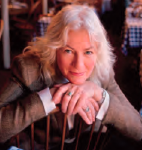
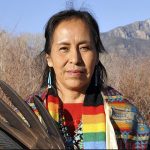
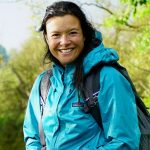

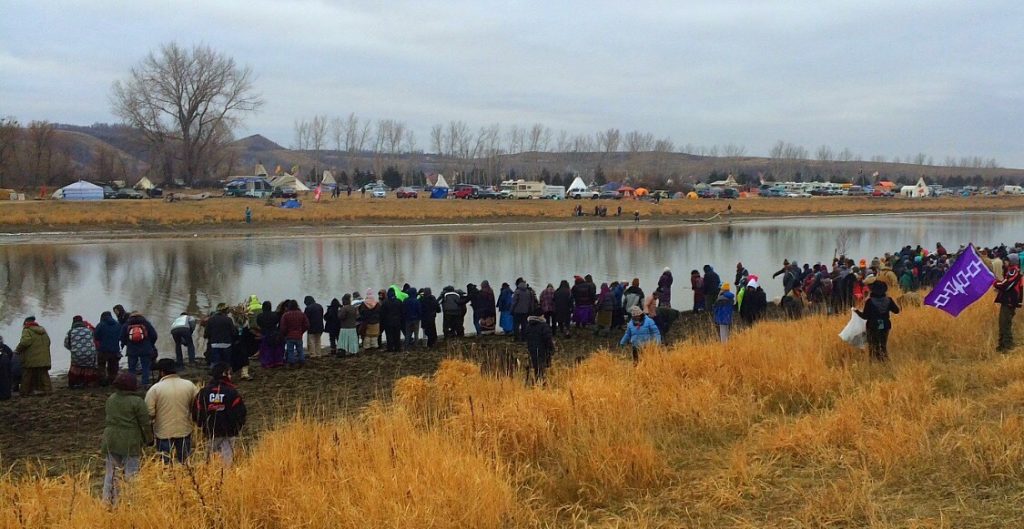
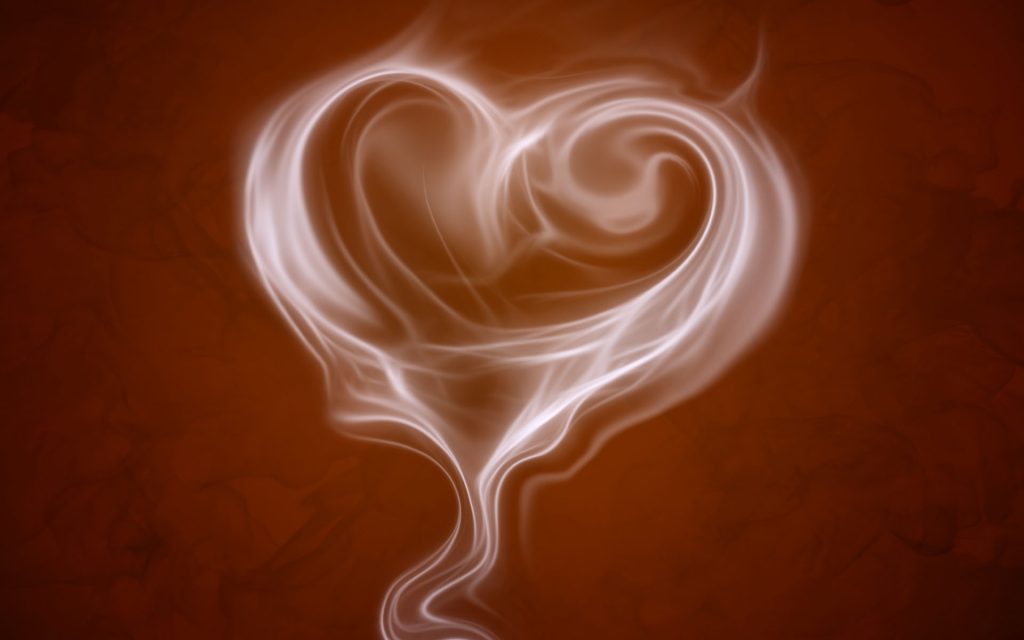
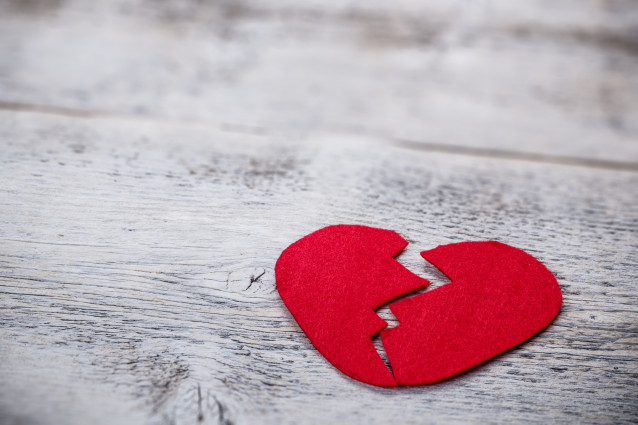
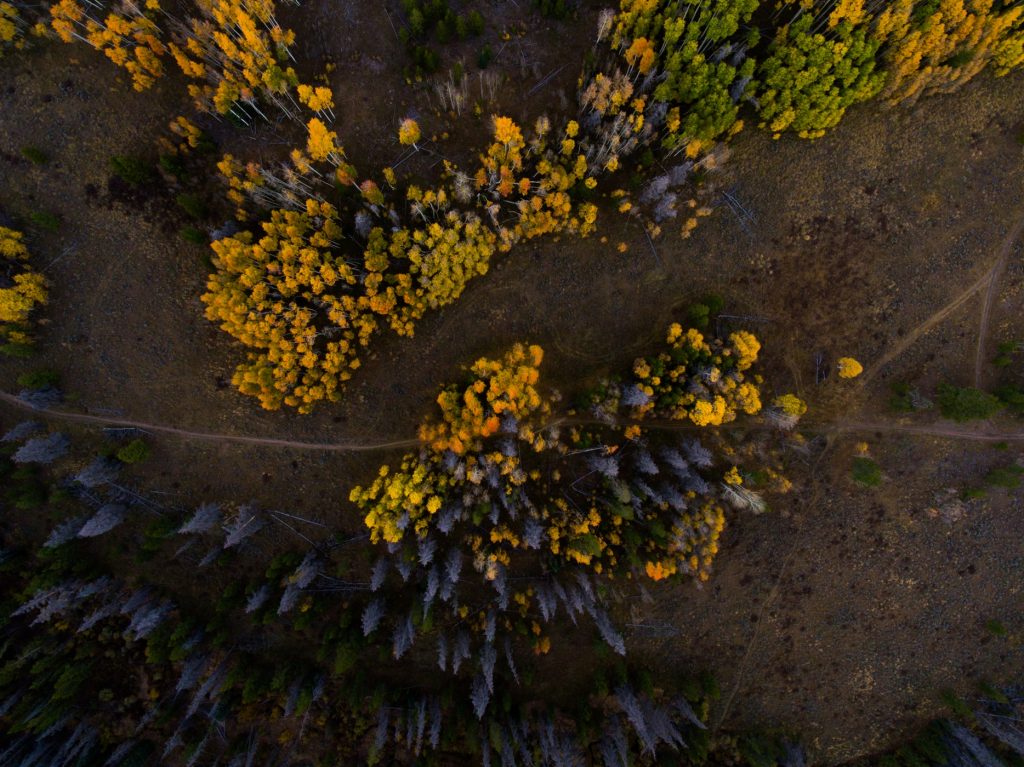
Thank you for this lovely conversation. I admire all of you and thank you for your sharing. As women, we are healers, of our children, land, government, people. But balancing that with spirit and energy is such a challenge.
I love what you are doing and I subscribed to share in your positive energy. I live in Colorado, a state somewhat in drought at times. It is necessary for all of us to save water and to treat it like a precious commodity. It is precious everywhere. The Israelis are really good with using water sustainably. We can all learn these technologies. Island nations like Japan have had to learn how to be good stewards of their water. I believe that women are a force that hasn’t been tapped in moving in the right direction in saving our earth. We have to work with the indiginous peoples and protect the land and treat the land like our children — with care and respect. Women get it. We can teach the men if we try. We have to teach them about wasting resources like the women and girls in the world. We deserve education and equality everywhere in the world. We made great progress this past election and we have to find ways to keep positive about what we are doing. Thanks for listening.